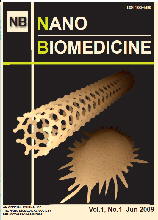SynopsisThe present study attempted to obtain factors that induce the calcified nodule formation in a mesenchymal stem cell (MSC) culture through the aggregation of micro- or nanoparticles, such as calcium carbonate. There are few suitable cell sources in the oral cavity other than dental pulp tissue, from which only a small number of MSCs may be obtained. However, a large number of MSCs are needed for tooth regeneration. Therefore, factors that promote MSC proliferation and differentiation are required. Vitamin B
1 (VB
1), vitamin B
3 (VB
3) and vitamin B
5 (VB
5), which are present in physiologically active substances, were selected and investigated their effects to bone formation
in vitro. VB
1 and VB
3 significantly increased the ability of dexamethasone (Dex) to form calcified nodule aggregates
in vitro, whereas VB
5 exerted the opposite effects. Therefore, it was confirmed from the results of this
in vitro study that VB
1 and VB
3 may affect to Dex to promote MSCs in rat bone marrow cells for proliferation and differentiation into hard tissue-forming cells and the formation of calcified nodule aggregates.
Key words: Vitamin B, Calcified nodules, Bone marrow cells, Dexamethasone
All documents
DOI :
"https://doi.org/10.11344/nano.15.51"
J-stage :
Nakama H, Yoshikawa M, Matsuo N, Maeda H. Effects of vitamins added to culture medium for calcified nodule formation by rat bone marrow cells. Nano Biomed 2023; 15: 51-65.
